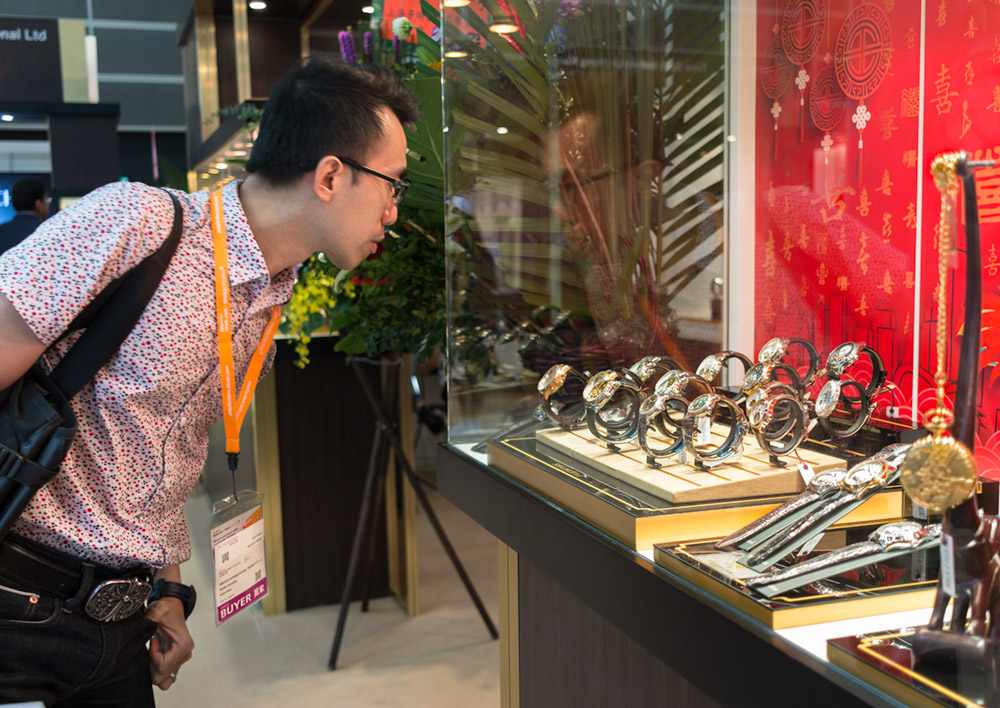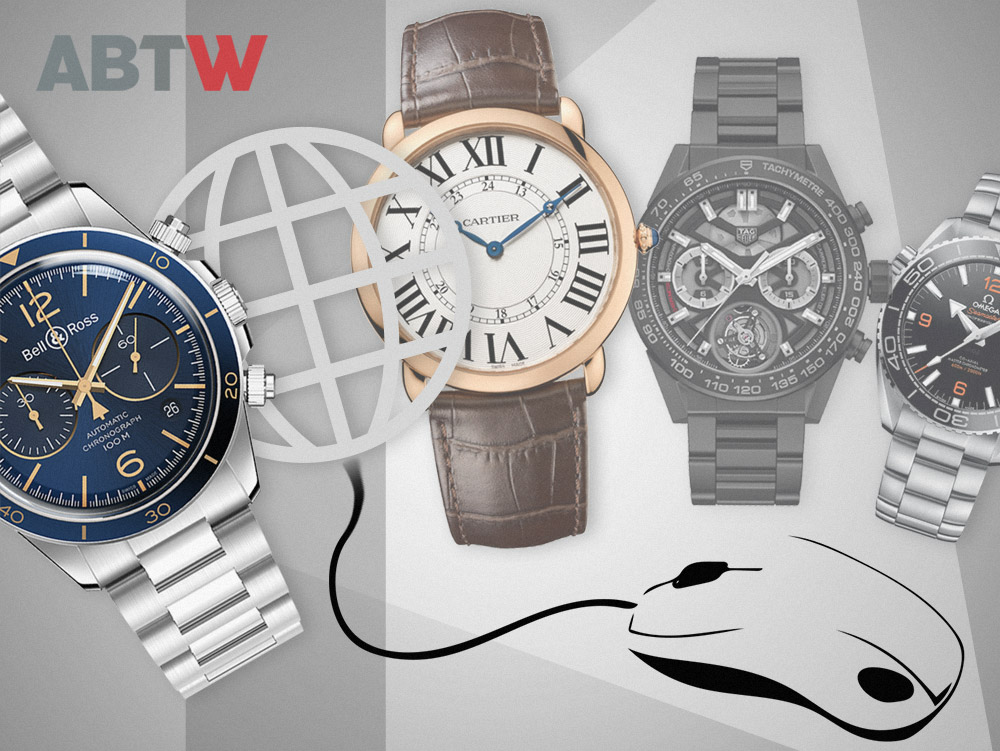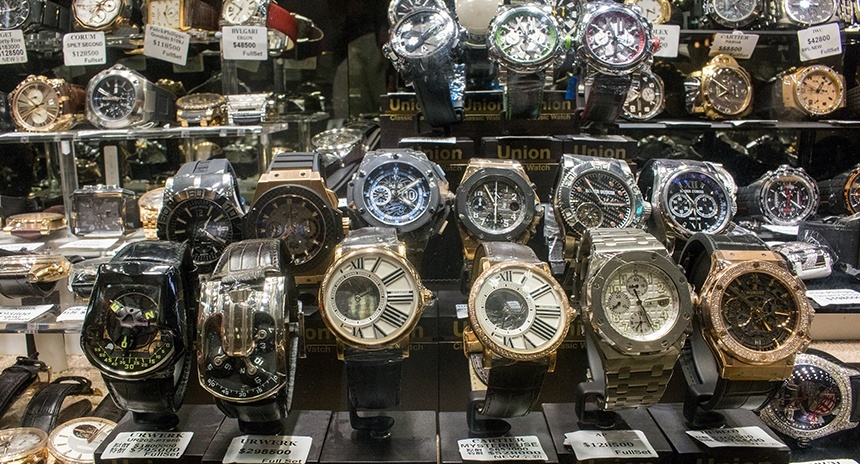
Imagine the following scenario. It probably happens on a daily basis, and the issues which are at the root of it are both complex and far-reaching. Put yourself in the shoes of an average man ready to buy his first Rolex timepiece. You aren’t a watch collector, but for years the strong marketing power of Rolex has romanced you on the notion that when you make it, you should tell the world about it and remind yourself of your success by buying a Rolex timepiece. Maybe you closed an important business deal or just want to reward yourself for any number of personal achievements – you know what you want to do with a Rolex.
Most men have a practical approach to things and let’s say the same applied to you. Dress watches and those which communicate status in a flashy way with gold and other precious materials probably aren’t your thing. Steel, sports-style watches speak the loudest to you. After browsing the Rolex website you feel assured that the company whose logo you’ve been seeing for years has more than one model that will satisfy your needs. Not knowing much about shopping for a watch, you decide that going to a Rolex store is the best idea. There happen to be two dealers in your town according to the Rolex website. Next step: visit the store.

Now, I am about to describe a situation that just a few years ago wasn’t happening, and it is my hope that in a few years from now it will no longer be happening. As you enter the Rolex store you begin to stroll around looking for a Rolex Submariner. It’s the most classic model you can imagine, and it has pretty much everything you want in a timepiece. Looking through vitrines and showcases you can’t seem to find one. Rolex has plenty of Datejust models and other watches, but you can’t seem to find a single Submariner – or anything like it. Time to ask for help.
The sales person is pleasant but proves unhelpful. “You don’t have a Submariner?… Well, when will you get one?… Waiting list? How long is the wait?… You can’t tell me? Are we talking days, weeks, months? This is like your most popular product, well at least I thought it was. Can you check the inventory of other stores?… No one has it in stock? Do you have any other steel sports watches? Not one? Does anyone? Above retail price? I don’t understand…”
You leave the Rolex store a bit dejected and rather disappointed. Not giving up yet you proceed to go on the internet to check prices. Even on Rolex’s most basic timepiece, you can’t seem to find any at retail price – which is what you are willing to spend. The internet seems to have a lot of these watches available, but all seem to be in the hands of private dealers – not Rolex stores who appear to be missing entirely from these online marketplaces. After an hour of searching online for the watch, you get frustrated. Paying above retail for a watch whose origin isn’t clear to you doesn’t make you feel right. What began as a sincere desire to walk into a Rolex store and reward yourself has turned into an unpleasant exercise in futility. “Maybe Rolex watches aren’t for me. Is buying any popular watch like this? Should a watch be what I reward myself with if the system to sell them seems to be disinterested in my money?”
Watch Speculators & Scalpers
This article is a thematic follow-up to a piece I wrote a few months ago on why some Rolex and Patek Philippe steel watches are impossible to find at retail. The resulting feedback of that article, as well as the many people who shared their experiences with me, taught me even more about a situation in the watch industry that I consider dangerous. How? Dangerous for the image of the watch industry today, dangerous for the satisfaction of the lay luxury consumer who keeps the industry going, and dangerous for the future of the watch industry which is embroiled in a series of uncomfortable transitions at many large brands and groups. This article attempts to explain the types of individuals as well as market forces which got us to this point, ending with what I feel is a sensible recommendation on what concerned consumers can do.
There are two types of entities which really got us to where we are today – and for once one can’t really blame the watch industry itself. Surely they can be accused of not acting fast enough to protect their own market and the experiences of consumers, but the situation we are in is not actually one that the brands themselves attempted to create. This is a story of hyper-conservatism among watch buyers, as well as the predatory unscrupulousness of salespeople ranging from private dealers to well-organized auctioneers.

Let me begin by explaining what I mean by watch speculators and watch scalpers – because they be can the same person at once. Watch speculators are consumers who purchase a wristwatch with the intention of selling it for profit. These aren’t consumers interested in wearing the watches for themselves (at least not for that long), but rather those who feel they can purchase them and resell them at a later date to someone else at a profit. Watch scalpers are those who purchase timepieces at retail prices only to re-sell them later at a markup. Watch scalping works with popular models that aren’t as easily available in stores. The method is for a range of scalpers all over the world to purchase up as much product at retail as possible – often posing as normal consumers. Instead of being normal consumers they are dealers who sell these watches to other dealers, or who sell them direct to customers. The internet has empowered all of this, or at the least vastly inflated existing issues found only in small pockets of the industry. Today almost anyone who has purchased a popular watch in the last few years has likely had some experience actively dealing with or coming across a watch speculator or scalper. There is a good chance many of these “dealers” are probably reading this article right now. No hard feelings, but you guys aren’t helping anyone but yourselves.
Watch scalpers either are speculators themselves or sell directly to them. These people comb watch retail stores and often have direct relationships with sales staff. In some parts of the world, the actual salespeople at stores conspire with these dealers to sell them product immediately when it gets into a store. Understand that Rolex (for example) doesn’t inform its retail partners what watches they will be receiving. This means that each time a new shipment comes, only then will the person opening the box know whether or not a hot model just came in. Those salespeople conspiring with the scalpers sell the watches to them, likely earn a small commission on the side, and then go about their business. That watch which could have been sold to the type of person who keeps Rolex going strong has now just been deprived of that experience. Instead, the watch in question will be listed somewhere for a price above retail – sitting there until someone chooses to buy it. At the time of writing it isn’t uncommon for a new Rolex steel sports watch to go from between 10% to more than 100% above retail price. Normally none of this is supported by contracts watch brands have with their retailers. This conduct is generally considered rogue, and not authorized by the brands.

Watch scalpers only exist because there is a market. It is a role entirely dependent on the economics of supply and demand. Watch scalpers exist because of watch speculators. Or rather, buyers who for whatever reason forsake other suitable products not priced over retail for watches which are priced at over retail. What is among the few reasons consumers will spend more than retail price on a product? If they feel it can be resold for even more. Very few consumers are known to actively stomach the embarrassment of paying over retail for a product because they really, really want it. There are just far too many high-quality watches available at or under retail for consumers to be widely paying price premiums at the rate which is being asked by scalpers these days. My experience and interviews with consumers and retailers alike suggest that paying over retail is the result much more of manipulation rather than an earnest desire to have a rare product no matter the cost.
I’d very much like to hear about our readers’ experience with watch speculation and scalping. I’ll tell you a personal experience that I find interesting – related to the notion of manipulation. It actually has to do with older, even pre-owned watches, but the logic is applicable. In most industries the best deals are on no longer made recent models which stores and companies want to move. “Last year’s model” means today’s discount, and for the most part this is exactly what the watch industry was like. The best deals for timepieces were for recently discontinued watches that didn’t have much chance of going up in demand. A few years ago in Hong Kong I recall seeing loads of older watches, still in their factory sealing at impressive discounts which marked them as “priced to move.” That was then.
Today the same watches, at the same stores are going for above retail price. Many of these watches aren’t even new – still, they go for above retail price. Let me correct that, they are priced at above retail. What they are actually selling for is different. The dealers also seem far less motivated to sell. At the very least they weren’t motivated to sell to me. I later learned that they were seeking a totally different type of consumer altogether. So what was the stated reason for all the new, higher prices? “No longer made.” Yes, these retailers suddenly seemed to collectively agree that a watch that was no longer in production merited a price premium for this fact. Forget that most of these watches could be purchased more cheaply online (often by thousands of dollars). The interesting reality was that the new strategy of these third-party dealers was to position older watches as valuable rarities because they were no longer made. I’m experienced enough as a watch collector to know their logic was not only flawed but 90% of the time total hogwash. So where was the behavior coming from? The scrappy Hong Kong watch dealers were learning from speculators and turning into a form of scalpers. In many of those windows were brand new Rolex watches priced at thousands above retail – that should have been purchasable at retail around the corner at any number of authorized Rolex stores.

While Hong Kong is a particularly dense market for watches, the same is happening all over the world in all major watch buying markets. Scalpers and speculators have in many ways totally ruined the watch buying experience for common consumers.


